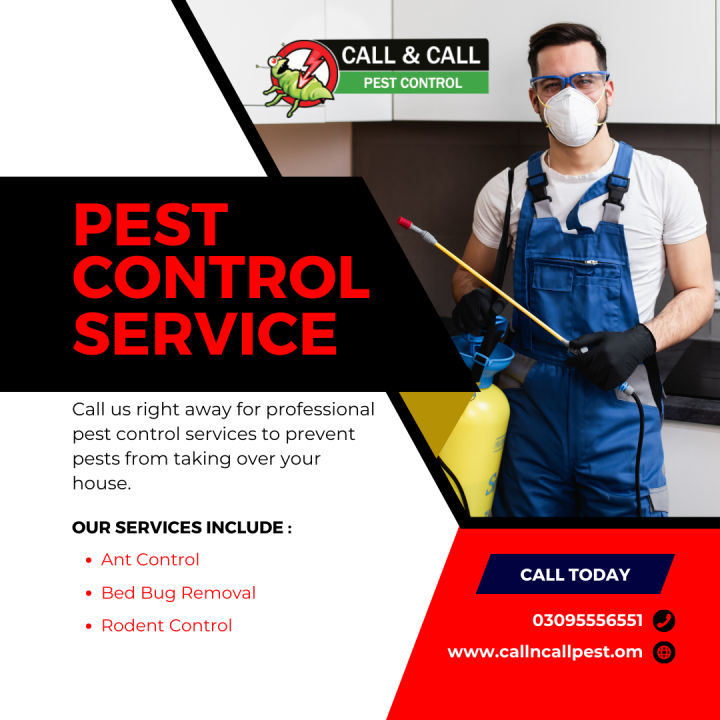Recognizing the Various Strategies to Insect Control: A Comprehensive Overview

All-natural Bug Control Approaches
Utilizing environmentally friendly techniques such as friend growing and biological pest control is important for effectively taking care of bugs in agricultural setups. Buddy planting entails growing different plants in distance to deter bugs, improve nutrient uptake, and boost general crop health.
Organic insect control entails presenting natural killers or microorganisms to control pest populaces. Ladybugs, as an example, prey on aphids, managing their numbers without the demand for chemical pesticides. An additional example is making use of Bacillus thuringiensis (Bt), a germs that targets specific insect bugs while being harmless to people, pets, and helpful insects.
These environment-friendly methods not just reduce the reliance on artificial pesticides however also assist maintain biodiversity and soil wellness. By incorporating natural parasite control methods right into agricultural methods, farmers can achieve sustainable bug management while lessening negative influences on the environment.

Chemical Insect Control Solutions
In addition to natural bug control methods, the usage of chemical bug control solutions plays a considerable duty in successfully taking care of pest populaces in farming environments. Chemical insect control services are developed to target certain parasites that might cause comprehensive damage to crops. These options usually have synthetic pesticides that are developed to eliminate bugs swiftly and successfully.
Among the vital benefits of chemical parasite control remedies is their effectiveness in controlling pest infestations on a large scale. Farmers can use these remedies making use of numerous approaches such as splashing, airing out, or seed therapy to secure their plants from dangerous bugs, weeds, and illness. Furthermore, chemical insect control services are relatively easy to apply and can offer fast results, assisting farmers protect their yields and reduce economic losses.
Nevertheless, it is important to use chemical insect control services judiciously to reduce possible unfavorable effect on the atmosphere, non-target organisms, and human wellness. Appropriate application techniques, adherence to security guidelines, and routine monitoring are crucial to make sure the responsible use chemical insect control remedies in agricultural methods.
Biological Bug Control Approaches
Organic parasite control comes close to leverage natural predators or microorganisms to handle parasite populaces in farming setups effectively. One common biological control method is the introduction of all-natural opponents, such as ladybugs or parasitical wasps, to target details parasites.
Another dig this biological control method involves using pathogens like infections, microorganisms, or fungis to contaminate and eliminate parasites. These microbial representatives can be splashed on crops or introduced into the soil to battle numerous parasites without damaging beneficial insects or various other wild animals. In addition, using pheromones to disrupt the mating patterns of parasites is an additional efficient biological control strategy. By conflicting with their recreation, this technique assists to reduce pest populaces without the requirement for chemical intervention. Overall, organic bug control techniques provide a sustainable and targeted solution to you can look here pest monitoring in farming.
Integrated Parasite Monitoring (IPM)
Integrated Pest Management (IPM) is a detailed technique that integrates numerous insect control strategies to successfully handle and minimize pest populaces in farming systems. IPM focuses on lasting prevention of bugs via a combination of biological, social, physical, and chemical control methods. By integrating these various approaches, IPM aims to minimize dependence on chemical pesticides, minimize environmental influence, and advertise sustainable insect monitoring techniques.
One key element of IPM is the usage of organic controls such as natural predators, parasites, and microorganisms to manage pest populations. This technique harnesses the power of nature to keep an equilibrium between insects and their natural opponents without triggering injury to the setting.
Additionally, IPM involves cultural practices like crop hygiene, environment, and turning control to produce undesirable problems for bugs and disrupt their life cycles. Physical controls such as traps, barriers, and mulches are additionally made use of to avoid parasite problems.
Mechanical and Physical Parasite Control Strategies
Making use of non-chemical approaches, such as physical and mechanical bug control methods, is a critical aspect of extensive pest monitoring methods, developing upon the foundation of Integrated Pest Monitoring's alternative method. Mechanical pest control entails making use of physical barriers or traps to avoid parasites from accessing and damaging crops or frameworks. This approach can include techniques like mounting screens on their explanation home windows, utilizing row covers in agriculture, or using sticky traps to catch pests.
Physical bug control techniques, on the other hand, concentrate on straight getting rid of pests via physical means. Using warmth treatments to eradicate bed insects or vacuuming up pests like crawlers or ants can be effective methods to take care of invasions without the usage of chemicals. By incorporating these physical and mechanical bug control strategies right into an Integrated Parasite Management strategy, specialists and individuals can reduce dependence on chemicals while still properly taking care of pest populaces and minimizing damages.
Conclusion

In enhancement to natural parasite control techniques, the usage of chemical pest control remedies plays a considerable role in properly handling pest populations in farming environments.One of the vital benefits of chemical pest control remedies is their efficiency in regulating bug infestations on a huge scale.Integrated Parasite Administration (IPM) is a thorough technique that combines different pest control methods to effectively take care of and minimize pest populaces in agricultural systems.Using non-chemical approaches, such as physical and mechanical parasite control methods, is a crucial element of thorough insect monitoring strategies, developing upon the structure of Integrated Pest Administration's all natural method. By integrating these physical and mechanical insect control methods right into an Integrated Pest Administration strategy, experts and people can lower reliance on pesticides while still successfully taking care of pest populations and reducing damage.